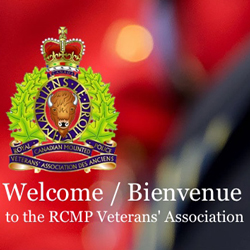Former RCMP Officer Adds to Criticism of Force’s Response to PTSD

RCMP Veterans’ Association
Veterans Helping Veterans and Their Families
This information is being provided to all Association Members
Former RCMP officer adds to criticism of Force’s response to PTSD
Dear Association Members,
The following story appeared in a October 24th., article on the CBC News website.
It is provided for your information.
CBC –
James Forrest
Director of Communications
RCMP Veterans’ Association
A former RCMP officer has raised his voice in support of high profile RCMP officer Staff Sgt. Jennifer Pound who spoke out last week saying post-traumatic stress disorder among Mounties is a worsening crisis.
Last week, in an exclusive interview with CBC, Pound, the former spokesperson for the Integrated Homicide Investigation Team, detailed her struggles with PTSD and how the RCMP hindered her abilities to seek recovery.
“If you’re going through PTSD and you’re trying to make sense of everything and you’re trying to get the help that you need, you feel like a burden. You feel like a burden to the system and you feel like a burden to the people that you love,” Pound said.
Jason Gillis, a former RCMP constable based in Prince George, B.C. says his own experience with PTSD in the force was very similar.
“It was something that just we didn’t ever talk about,” Gillis said. “It was like a taboo thing we didn’t deal with it.”

Gillis, 46, says he was diagnosed with PTSD in 2001 after a bad accident, and seeing the World Trade Center attack, but he says he did not get treatment until 12 years later in 2013.
During the 12 years he worked with his diagnosis, Gillis says he felt like a machine.
“I basically shut out all my feelings. I shut out my family. I was, for lack of a better word, just a body,” he said.
Gillis eventually took sick leave, but echoing Pound, said he felt pressured to return back to work by the RCMP. He felt like he was given three options: return to work, retire, or take a medical discharge.
“I felt their whole job was just to get rid of us,” he said. “I’m a small cog in a huge, huge wheel and the force is going to do what they want.”
This June, Gillis left the RCMP after 19 years and 6 months of service, taking a medical discharge..

Cpl. Megan Apostoleris with RCMP’s media relations said that while members of the RCMP have unlimited sick leave, there are instances where a member can reach “maximum medical recovery.”
“If permanent accommodation is not possible based on the member’s [limitations and restrictions], then other options are considered including medical discharge or retirement,” she wrote in a statement to CBC News.
Apostoleris said the RCMP takes issues of work-related stress and mental illness very seriously, and is “committed to supporting and enhancing the health, safety and resiliency of its employees.”
.

Editor’s Note:
An interesting sidebar to this story is that Cpl Apostoleris is currently working very hard in support of an anti-cancer campaign, Fight For The Cure (FFTC). Megan describes her motivation as follows,
“The reason I am Fighting for the Cure is simple: Helping people is my passion. I chose to be a Police Officer to help people in my professional life. I chose to be a CrossFit coach to help people in my personal life and I chose to get involved with FFTC to help people who need it most: those fighting their battle with Cancer.”
Copyright © 2019 RCMP VETERANS’ ASSOCIATION. All rights reserved.
Updated all members list for 2019 – deletes previous regional lists: Atlantic, Prairies & Pacific.
Our mailing address is:
RCMP VETERANS’ ASSOCIATION GRC
140 Riverstone Drive
Nepean, Ontario
K2J 5E5
Canada


 October 25, 2019
October 25, 2019 






